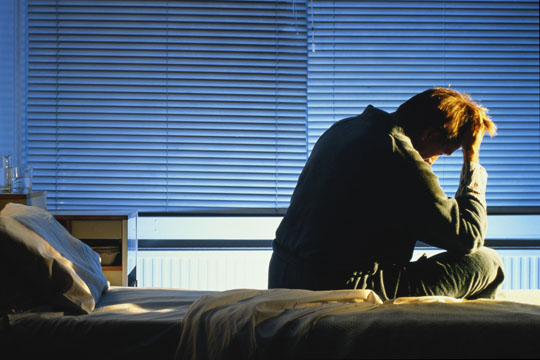
Sleep problems
I am Shalini Kaur, a 27-year-old housewife. Since the last 6 months, I am unable to sleep well at night. I have excessive worry about not being able to sleep. I try too hard to sleep. There is a rumination of thoughts and I am unable to clear my mind while trying to sleep. I am very anxious at that time. I am able to sleep better away from my bedroom or while I am watching television when I am not trying to sleep. I lie in the bed for almost 2 hours before I am able to sleep; I keep on watching the clock and it is a very painful process. I wake up late and I am not fresh on awakening; I also feel drowsy the whole day. Often I wake up at night also and then I am unable to sleep and wait for morning to come. The slightest noise awakens me. I do not want to try medicines for sleep because I fear that I may become dependent on it.
Sleep is a process that the mind requires for proper functioning. However, the seriousness of sleep problems is very poorly recognized and is met with even more indifference on the part of the caregivers. Sleep less than 4 hours or more than 10 hours per night, every night for long periods can result in medical and psychological problems. There may be problems initiating sleep, maintaining sleep, poor quality of sleep, increased time of sleep or abnormal behaviors associated with sleep. On an average, you should be asleep within 18 minutes of being in bed and have about 6 – 8 hours of sleep per night. There are however, people who can feel fresh even sleeping less (the short sleeper) or sleeping more (the long sleeper).
What you can do?
Certain sleep problems arise from environmental problems or maladaptive habits. Sleep hygiene refers to the basic rules designed to provide circumstances and conditions conducive to sleep. These include a list of things to incorporate into a good sleep ritual and things to avoid. Sleep enhancing directives include maintaining a regular sleep-wake schedule, keeping a steady program of daily exercise; insulating the bedroom against excessive noise, light, cold, and heat; eating a light snack before retiring if hungry; and setting time aside to relax before getting into bed. If you are unable to relax before getting to bed, you develop a pattern of emotional arousal upon getting into bed. Sleep hygiene don’ts are designed to prevent behaviors or relieve conditions incompatible with restful sleep. They include avoiding strenuous exercise immediately before bedtime; abstaining from alcohol, tobacco, and caffeinated beverages in the evening or in the afternoon if one is particularly sensitive; not watching television in bed and not always taking sleeping bills. Finally, the bed must not become an emotional or sexual battlefield on which couples work through or act out their anger. A few of these alterations in sleep environment can be effective. The other method is to control the stimulus, which prevents the initiation of sleep. These are interventions to enhance stimulus cues for sleeping and diminish associations with sleeplessness. These need to be followed consistently. You should go to bed only when sleepy, to maximize success. Use the bed only for sleeping. While in bed, do not watch television, do not read, do not eat and do not talk on the telephone. Do not lie in the bed and become frustrated if unable to sleep. After a few minutes (do not watch the clock), get up, go to another room, and do something nonarousing until sleep returns. The goal is to associate the bed with rapid sleep onset. You should also awaken at the same time every morning, regardless of bedtime, total sleep time, or day of the week. You should also avoid napping altogether. With the stimulus control, results may take a few days to weeks to appear. You can also restrict time in bed to consolidate sleep if you find yourself awake in bed unable to sleep. Do not reduce bedtime to less than 4 hours of sleep per day. Increase it by 15 minutes each time you achieve a good sleep. The adjunct to sleep hygiene is relaxation therapy. You can do either deep breathing or muscular relaxation. These techniques should be mastered during the day for several weeks before application to the sleep problem. With these four methods of sleep hygiene, stimulus control, sleep restriction and relaxation, you should be able to sleep well. If these do not work, you should not be hesitant in taking medications. There are a host of medications now available. You should take them for short-term purpose and not for long-term use. When used judiciously, most sleep promoting medicines can provide immediate and adequate relief. You should take the medication two to three nights consecutively and repeat this sequence no more than two or three times. Most of these medications lose their efficacy after five days of continuous use. Continuous long-term medications, on the contrary, perpetuate the sleep problem. So, do not hesitate to use medications (under supervised care). The last thing you need to be careful about is that the sleep problem can mask an underlying psychological or medical problem that should be addressed. Depression is often associated with sleep problems. Worries about an impending problem or perceived adverse circumstances can disturb sleep. Emotional or familial problems can also contribute to disturbed sleep. You may need to address those issues first as they are the cause of the problem.



